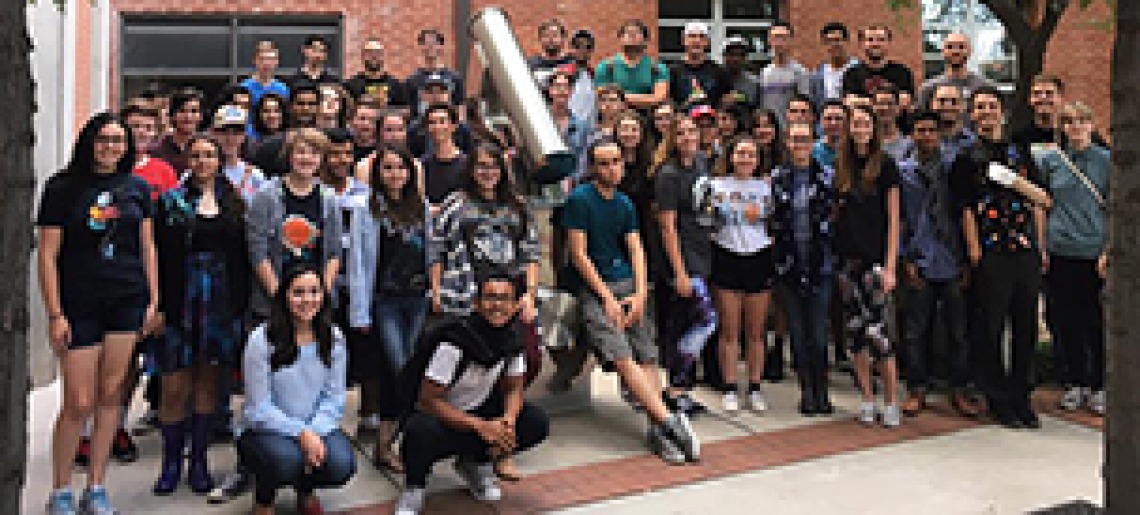The ATOMM and TIMESTEP Undergraduate Programs

Here are introductions to two relatively recent programs for undergraduates, ATOMM and TIMESTEP, offered by the Dept. of Astronomy/Steward Observatory. For more information about TIMESTEP, please contact Professor Gurtina Besla. For more information about ATOMM, please contact Professor Ed Prather. Permanent links for these programs can be found on the right side of our Undergrad Education page.
The Astronomy Department and The University of Arizona Astronomy Club (full size photo of Astro Club members) would like to draw your attention to free help sessions offered by the Astronomy Tutoring of Majors and Minors (ATOMM) program. ATOMM sessions are held at multiple times throughout the week in the Parker Library, on the 3rd floor of Steward Observatory. Come get help from experienced tutors who are dedicated to assisting you with your homework and course material for: Freshman and Sophomore classes in Astronomy, Physics and Math (including Vector Calculus and Differential Equations), which may not necessarily be offered through other on-campus tutoring services. There may also be students working on upper-division classes in the Parker Library as well. You do not need to be an astronomy major to attend! Parker Library is open as a place to work on homework/study individually or in study groups. Whenever you hit a snag, just come to one of the free ATOMM sessions so we can help.
TIMESTEP is a bi-weekly discussion group about topics of professional development for undergraduates in Astronomy, Planetary Science and Physics at U. Arizona. Topics Include: Discussions about the academic path: how to navigate the undergraduate degree, how to apply for graduate school, how to get a research position, how to present at conferences. Discussions about survival in academia: what is the imposter syndrome, unconscious bias and stereotype threat; topics about diversity and race in academia. Each meeting will involve a short talk followed by smaller discussions facilitated by faculty, postdocs and graduate students, enabling students to network with peers and leaders in their fields

